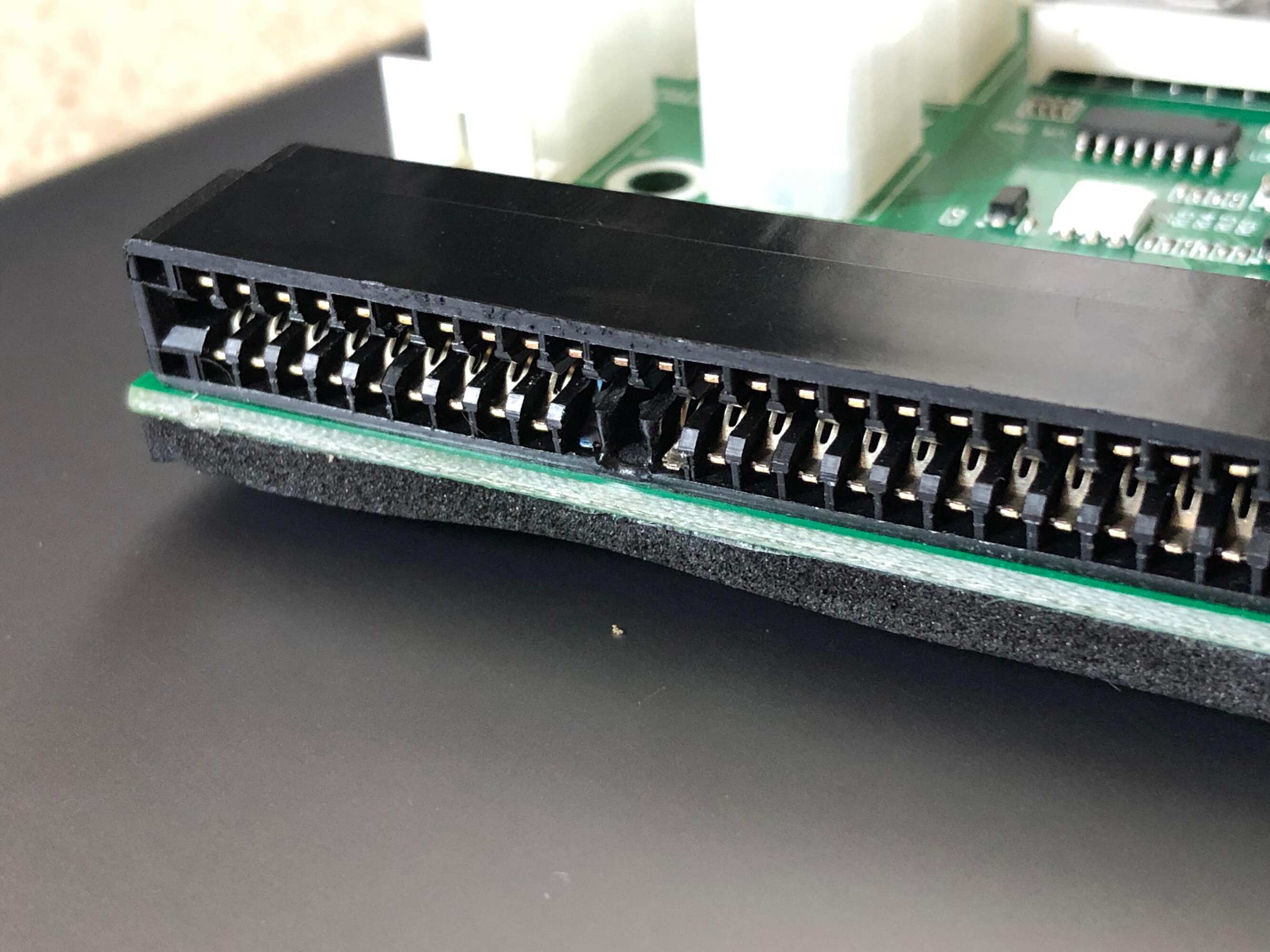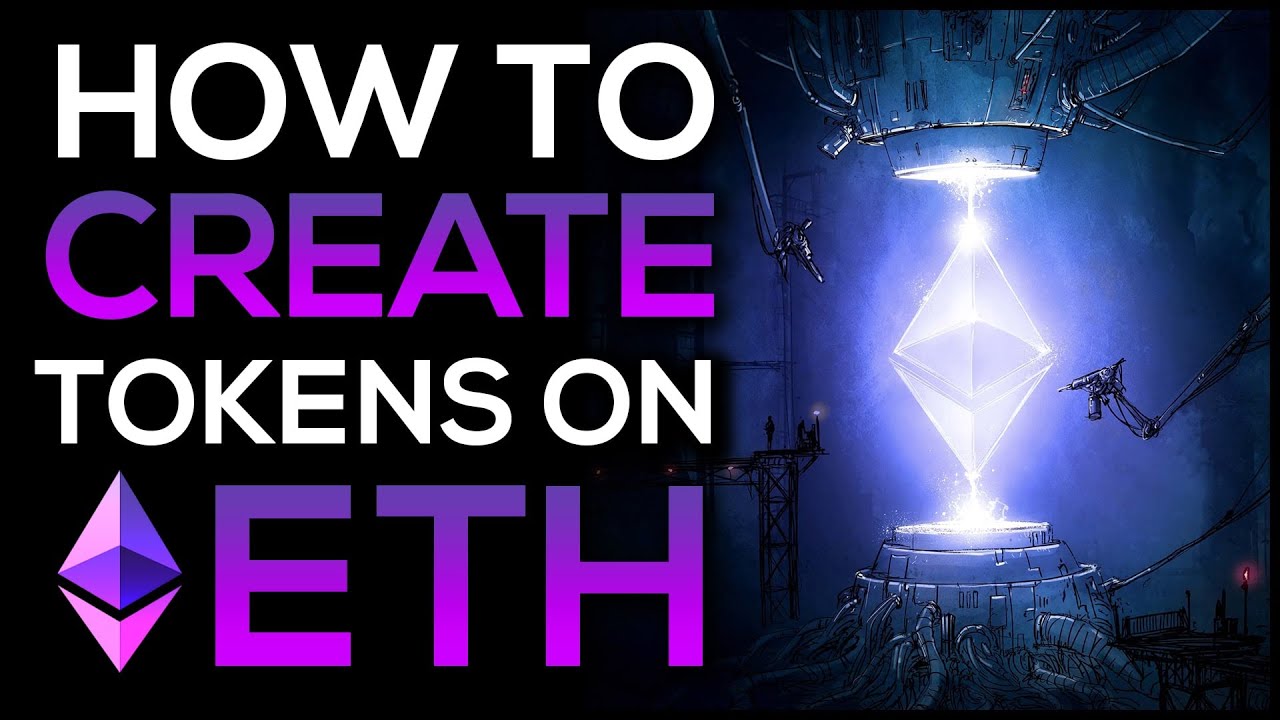What is Ethereum?
Ethereum is a decentralized blockchain platform that enables the creation and execution of smart contracts. Launched in 2015 by Vitalik Buterin, Ethereum has become one of the most popular cryptocurrencies after Bitcoin. However, unlike Bitcoin, Ethereum is not just a digital currency; it is a full-fledged platform that allows developers to build decentralized applications (DApps) on top of its blockchain.
At its core, Ethereum operates on a unique technology called the Ethereum Virtual Machine (EVM). This virtual machine processes and executes smart contracts, which are self-executing contracts with predefined conditions. Smart contracts eliminate the need for intermediaries, such as banks or lawyers, as they automatically execute the agreed-upon terms once the conditions are met.
Ethereum also has its native cryptocurrency, Ether (ETH), which serves as the fuel for the Ethereum network. Ether is used to pay for transactions, computational services, and fees for using decentralized applications built on the Ethereum platform.
One of the key features that sets Ethereum apart from other blockchain platforms is its ability to support the development of decentralized applications. These DApps can range from decentralized finance (DeFi) platforms and prediction markets to decentralized exchanges and gaming platforms.
Moreover, Ethereum is continuously evolving through a community-driven development process. Developers propose and implement upgrades to the platform through Ethereum Improvement Proposals (EIPs). One of the most significant upgrades planned for Ethereum is the transition from the current proof-of-work (PoW) consensus mechanism to a more energy-efficient proof-of-stake (PoS) mechanism, known as Ethereum 2.0.
In summary, Ethereum is a decentralized blockchain platform that enables the creation and execution of smart contracts and the development of decentralized applications. It provides a platform for developers to build innovative solutions and has its native cryptocurrency, Ether, which serves as the fuel for the network. With its thriving ecosystem and continuous development, Ethereum holds immense potential for the future of blockchain technology and decentralized applications.
Understanding Ethereum Units
Ethereum, like any other cryptocurrency, has different units of measurement to represent its value. It is crucial to understand these units to accurately assess the value of Ethereum holdings. Here are the primary units used in the Ethereum ecosystem:
- Ether (ETH): Ether is the native cryptocurrency of the Ethereum network. It is the main unit used for transactions and is often referred to as “Ethereum” in everyday discussions.
- GWei: GWei stands for Gigawei, and it is the denomination used for small transactions and gas prices on the Ethereum network. Each GWei is equal to one billion Wei.
- Wei: Wei is the smallest unit of Ether and is often used for precise calculations and microtransactions. There are one quintillion Wei in one Ether.
Understanding the relationship between these units is essential in assessing the value of your Ethereum holdings. For example, if someone says they have 0.01 Ethereum, they are referring to 0.01 ETH or 10,000,000 GWei.
When discussing the value of Ethereum, it is important to consider the unit being referred to. The price of Ethereum can fluctuate significantly, and it is typically quoted in terms of Ether (ETH). For instance, if the market price of Ethereum is $2,000 per ETH, then 0.01 Ethereum would be worth $20.
Moreover, transaction fees on the Ethereum network are usually denoted in Gwei. Gas is the unit used to measure the computational effort required to execute transactions and smart contracts on the Ethereum network. Gas fees are denominated in GWei and are paid in Ether.
To put it into perspective, if the gas fee for a transaction is 20 GWei and the gas price is 50 GWei, then you would need to pay 1 Ether (or 1,000,000,000 GWei) multiplied by the gas price of 50 GWei, resulting in a total transaction fee of 50,000,000 GWei (or 0.05 Ether).
Understanding these units and their interplay is crucial for accurately assessing the value of Ethereum and making informed decisions when interacting with the Ethereum network.
Exploring the Smallest Unit: Wei
When delving into the world of Ethereum, it’s essential to understand the smallest unit of measurement: Wei. Wei is the atomic unit of Ether and represents the smallest fraction of Ethereum that can be transacted. To put it in perspective, there are one quintillion Wei in one Ether.
Wei is primarily used for precise calculations, microtransactions, and in some cases, as a unit for gas fees on the Ethereum network. Gas refers to the computational effort required to execute transactions and smart contracts.
While Wei may seem insignificant due to its minute value, it plays a crucial role in the Ethereum ecosystem. For instance, when interacting with the Ethereum network, developers and users often deal with gas costs, denominated in GWei, whereby one GWei is equivalent to one billion Wei.
Wei can also be converted to other units of Ethereum, such as GWei, Ether, or its multiple denominations. For instance, if someone possesses 1,000,000,000 Wei, it can be equivalently expressed as 1 GWei, 0.000000001 Ether, or simply 1 Wei.
Understanding Wei is particularly important when dealing with gas fees. Each operation on the Ethereum blockchain consumes a certain amount of gas, and the total gas cost of a transaction is determined by the number and complexity of the operations. Gas fees fluctuate based on network demand, congestion, and the gas price set by users to incentivize miners.
When sending a transaction, it is essential to set an appropriate gas price to ensure that miners prioritize its inclusion in a block. The gas price, typically specified in GWei, represents the amount of Ethereum a user is willing to pay per unit of gas. For instance, a gas price of 20 GWei means that for each unit of gas consumed, the sender is willing to pay 20 GWei in fees.
By understanding Wei and its role in gas fees, users can make informed decisions when participating in the Ethereum network. They can adjust gas prices to meet their desired transaction speed and cost requirements, balancing efficiency and expenditure.
In summary, Wei is the smallest unit of Ethereum and plays a significant role in gas fees on the Ethereum network. Being aware of Wei’s value and how it relates to other units, such as GWei and Ether, is crucial for accurately understanding the cost and efficiency of transactions on the Ethereum blockchain.
Introducing Ether: A Larger Unit
While Wei represents the smallest unit of Ethereum, Ether (ETH) is the larger and more commonly referred to unit. Ether is the native cryptocurrency of the Ethereum network and is used for a variety of purposes within the ecosystem.
Similar to other cryptocurrencies, Ether serves as a medium of exchange, allowing users to transfer value between wallets. It is also used to pay for transactions and computational services on the Ethereum network. When executing a transaction or interacting with a smart contract, a certain amount of Ether is required to cover the gas fees associated with the operation.
Ether can be subdivided into smaller denominations, such as GWei and Wei. One Ether is equivalent to one quintillion Wei, enabling users to carry out microtransactions or precise calculations by using these smaller units.
Understanding the value of Ether is essential when assessing the worth of your Ethereum holdings or participating in the Ethereum ecosystem. The value of Ether fluctuates in response to market demand and supply dynamics. Its price is influenced by various factors, including investor sentiment, adoption by mainstream institutions, regulatory developments, and the overall performance of the cryptocurrency market.
Just like any other cryptocurrency, the value of Ether is subject to volatility, which means that its price can experience significant fluctuations within a short period. Therefore, it is important to stay informed and consider all relevant factors before making any investment decisions related to Ether.
Ether is not just a currency but also a means of accessing and utilizing the Ethereum platform. Developers leverage Ether to pay for deploying smart contracts, executing decentralized applications (DApps), and utilizing various features offered by the Ethereum ecosystem.
As Ethereum continues to develop and mature, the importance and utility of Ether are expected to increase. The upcoming transition to Ethereum 2.0, which aims to enhance scalability and energy efficiency, further highlights the significance of Ether within the Ethereum network.
In summary, Ether is the larger unit of Ethereum and serves as the native cryptocurrency of the Ethereum network. It is used for transactions, gas fees, and accessing the functionality of the Ethereum platform. Understanding the value and role of Ether is crucial in navigating the Ethereum ecosystem and participating in its various applications.
Calculating the Value of 0.01 Ethereum
When determining the value of 0.01 Ethereum (ETH), it is essential to consider the current market price of Ethereum. The price of Ethereum can fluctuate significantly due to factors such as market demand, investor sentiment, and overall market conditions. Let’s explore how to calculate the value of 0.01 Ethereum based on the current market price.
First, you need to find the current price of Ethereum per unit, which is typically quoted as the price of 1 Ether. Let’s assume the market price of 1 Ether is $2,000. To calculate the value of 0.01 Ethereum, you simply multiply the price of 1 ETH by the amount of Ethereum you have.
Calculation:
Value of 0.01 ETH = Market Price of 1 ETH x Amount of Ethereum (in ETH)
Value of 0.01 ETH = $2,000 x 0.01
Value of 0.01 ETH = $20
Therefore, if the market price of 1 Ethereum is $2,000, then 0.01 Ethereum would be worth $20.
It is important to note that the value of Ethereum is subject to change and can vary based on market conditions. The price you see at the time of calculation may differ when you decide to sell or exchange your Ethereum. It is always advisable to check the current market price before making any decisions regarding the value of your Ethereum holdings.
Additionally, it’s worth mentioning that the value of Ethereum is not solely determined by its price in traditional fiat currencies. Ethereum has its own inherent value based on its utility, adoption, and the ecosystem built around it. As Ethereum continues to grow and evolve, its value may be influenced by various factors unique to the cryptocurrency market.
Calculating the value of 0.01 Ethereum enables you to understand the approximate worth of your holdings in a given market environment. However, it is crucial to stay informed and monitor the market dynamics to make informed decisions regarding your Ethereum investments.
Factors Affecting the Value of Ethereum
The value of Ethereum (ETH) is influenced by a variety of factors, both internal to the cryptocurrency industry and external to the broader market. Understanding these factors can help investors and traders assess the potential for price fluctuations and make informed decisions. Let’s explore some of the key factors that affect the value of Ethereum.
1. Market Demand and Investor Sentiment: Like any other asset, the value of Ethereum is driven by supply and demand dynamics. Increased demand for Ethereum, driven by factors such as growing adoption, partnerships, or positive news, can push the price higher. Conversely, negative sentiment or reduced demand can lead to price declines.
2. Overall Cryptocurrency Market Conditions: Ethereum is part of the broader cryptocurrency market, and its value can be influenced by market trends. Major developments in other cryptocurrencies, regulatory decisions, or global market conditions can impact the overall sentiment towards cryptocurrencies and subsequently affect the value of Ethereum.
3. Technology and Development: As an evolving blockchain platform, Ethereum’s value is closely tied to its technology and development progress. Upgrades, such as Ethereum 2.0, which aims to improve scalability and energy efficiency, can positively impact the value of Ethereum by increasing its utility and attracting more users and developers to the platform.
4. Network Usage and Adoption: The level of usage and adoption of the Ethereum network is an essential factor in determining its value. Increased usage of Ethereum for decentralized applications (DApps), stablecoins, or other use cases can create a higher demand for Ether, positively affecting its value.
5. Regulatory Environment: Regulatory decisions and policies can significantly impact the value of Ethereum and other cryptocurrencies. Positive regulatory developments, such as clear guidelines and supportive frameworks, can instill confidence in the market and lead to increased adoption and value appreciation. Conversely, unfavorable regulations or uncertain regulatory climates can create volatility and negatively impact the value of Ethereum.
6. Integration with Traditional Finance: The integration of Ethereum into traditional finance, including partnerships with financial institutions, the creation of financial products based on Ethereum, or the adoption of Ethereum-based solutions by industries, can have a significant impact on its value. Increased integration can raise the profile and utility of Ethereum, attracting more investors and driving its value higher.
7. Investor Perception and Media Coverage: Investor sentiment and media coverage can play a role in shaping the value of Ethereum. Positive media coverage, endorsements by influential individuals or organizations, and overall market sentiment can impact investor perception and attract more interest, potentially leading to an increase in value.
It is crucial to note that these factors are interconnected and can influence each other. The cryptocurrency market is highly dynamic and subject to rapid changes, making it essential for investors and traders to stay informed about these factors and monitor market conditions.
By considering these factors and conducting thorough analysis, investors can gain insights into the potential value of Ethereum and make informed decisions about investing, trading, or participating in the Ethereum ecosystem.
How to Buy 0.01 Ethereum
If you’re interested in buying 0.01 Ethereum (ETH), there are several steps you can follow to acquire this specific amount of Ethereum. Here’s a general guide on how to buy 0.01 ETH:
1. Choose a Cryptocurrency Exchange: The first step is to select a reputable and secure cryptocurrency exchange that supports Ethereum. Popular exchanges include Coinbase, Binance, Kraken, and Bitstamp. Ensure that the exchange operates in your country and offers the necessary features and trading pairs.
2. Create an Account: Sign up for an account on the chosen exchange. This typically involves providing your email address, creating a password, and occasionally completing a verification process to comply with Know-Your-Customer (KYC) regulations.
3. Complete Identity Verification (KYC): Some exchanges require users to complete the KYC process, which involves verifying your identity by providing personal information and supporting documents like identification cards or passports.
4. Deposit Funds: Once your account is set up and verified, deposit funds into your exchange account. Most exchanges accept bank transfers, credit/debit cards, or other cryptocurrencies as methods of deposit. Choose the option that suits you best and follow the instructions provided by the exchange.
5. Place a Buy Order: After your funds are successfully deposited, locate the trading section of the exchange and search for the Ethereum trading pair. For example, if you want to buy ETH with US dollars, find the ETH/USD trading pair. Set the amount to 0.01 ETH and place a market or limit order based on your preference.
6. Review and Confirm: Before finalizing your purchase, carefully review the details of your order, including the quantity, price, and fees involved. After ensuring everything is accurate, confirm the order to execute the purchase.
7. Securely Store Your Ethereum: As soon as your order is filled, your 0.01 ETH will be credited to your exchange account. It is highly recommended to transfer your Ethereum to a personal wallet for enhanced security. Set up a compatible Ethereum wallet and initiate the withdrawal process from the exchange to your wallet address.
Remember, the steps mentioned above are a general guideline, and the actual process may differ slightly depending on the specific exchange and local regulations. It’s also essential to conduct thorough research and consider factors such as fees, security measures, and customer support when choosing a cryptocurrency exchange.
Lastly, investing in cryptocurrencies comes with risks, and it is advisable to only invest what you can afford to lose. Stay informed about the latest market trends, do your own research, and consider seeking guidance from financial professionals before making any investment decisions.
Storing and Managing 0.01 Ethereum
Once you have acquired 0.01 Ethereum (ETH), it’s important to store and manage it securely. Here are some options for storing and managing your 0.01 ETH:
1. Software Wallets: Software wallets are applications or programs that are installed on your computer or mobile device. They provide a convenient way to store and manage your Ethereum. Examples of popular software wallets include MetaMask, MyEtherWallet, and Trust Wallet. When using software wallets, it is crucial to keep your private keys secure and regularly backup your wallets to prevent any loss of funds.
2. Hardware Wallets: Hardware wallets are physical devices designed to securely store cryptocurrencies. They are considered one of the most secure options for storing crypto assets. Popular hardware wallets include Ledger Nano S, Trezor, and KeepKey. These devices store your private keys offline, providing protection against online threats. They are user-friendly and offer an extra layer of security for your 0.01 ETH.
3. Custodial Wallets: Some cryptocurrency exchanges and online wallets offer custodial services where they hold your Ethereum on your behalf. While convenient, custodial wallets involve trusting a third party with your funds. It’s important to choose reputable and trustworthy platforms if opting for this storage method.
Regardless of which storage method you choose for your 0.01 ETH, here are some general tips for managing your Ethereum:
– Regularly Update Software: Ensure that you are using the latest version of your chosen wallet software or hardware. Keep up with updates and security patches to protect against vulnerabilities.
– Implement Two-Factor Authentication (2FA): Enable two-factor authentication whenever possible to add an extra layer of security to your wallet or exchange account. This typically involves using a code generated by an app on your mobile device or receiving a verification code via SMS.
– Be Cautious of Phishing Attempts: Be vigilant and watch out for phishing attempts where malicious actors try to trick you into revealing your private keys or sensitive information. Always double-check the website’s URL and avoid clicking on suspicious links or emails.
– Keep Backup Copies: Make regular backups of your wallet’s private keys or recovery phrases and store them securely offline. This will ensure that you can recover your funds in the event of device loss or damage.
– Be Mindful of Security: Avoid sharing private keys or sensitive information with anyone. Be cautious when connecting to public Wi-Fi networks and use secure internet connections whenever possible.
By following these best practices, you can effectively store and manage your 0.01 ETH and safeguard your funds against potential security risks.
Conclusion
Ethereum is a decentralized blockchain platform that offers tremendous potential for the future of finance, technology, and decentralized applications. Understanding Ethereum units, such as Wei and Ether, is essential for accurately assessing the value of Ethereum holdings and navigating the Ethereum ecosystem.
When calculating the value of 0.01 Ethereum, it’s important to consider the current market price of Ethereum. Factors such as market demand, technology and development progress, network usage, and regulatory environment can all impact the value of Ethereum.
To buy 0.01 Ethereum, you can follow a simple process that involves selecting a reputable cryptocurrency exchange, creating an account, depositing funds, placing a buy order for Ethereum, and securely storing it in a personal wallet.
When storing and managing your 0.01 Ethereum, you have options such as software wallets, hardware wallets, or custodial wallets. It’s crucial to prioritize security by using up-to-date software, enabling two-factor authentication, being cautious of phishing attempts, and keeping backup copies of your wallet’s private keys or recovery phrases.
As with any investment, it’s important to be mindful of the inherent risks associated with cryptocurrencies and consider seeking professional advice before making any financial decisions.
With its innovative technology, thriving ecosystem, and continuous development, Ethereum continues to shape the future of decentralized applications and redefine the possibilities of blockchain technology. By staying informed and taking necessary precautions, you can fully embrace the potential of Ethereum while ensuring the security and management of your Ethereum holdings.

























